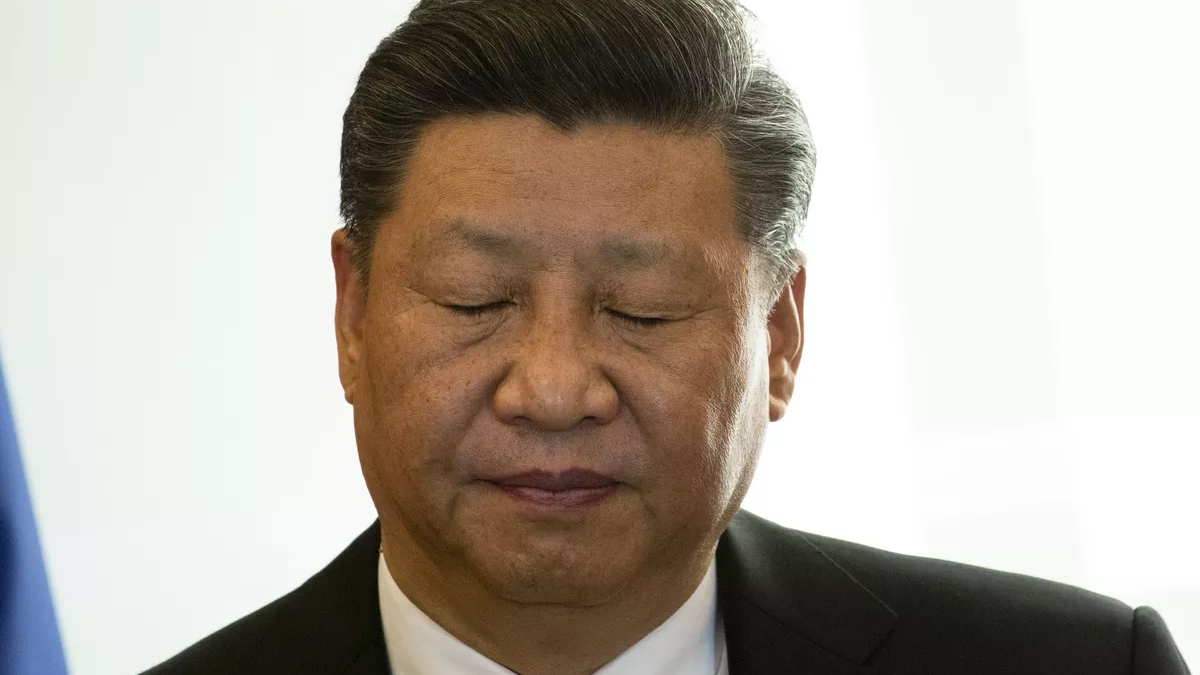Communism thrives on enemies. Even in the West, Marxists continually portray themselves as besieged victims, even as they brutally seize the reins of power in every institution of civic life.
China is no exception. The innate paranoia of communist regimes combines with the Middle Kingdom’s vanity and insularity – especially as the regime’s unleashing (even accidentally) of a devastating pandemic more and more makes it a global pariah.
Today’s pandemic seems to have triggered a strategic and political Communist Party psychosis. The Chinese lone wolf has transformed into the wolf warrior, insulting nations and threatening multiple countries with economic and/or military punishment for perceived insults. From its actions in Hong Kong to the escalation of disputes with Taiwan, Japan, Southeast Asian nations, India, Canada, Britain, Europe and, of course, Australia, any good faith built up over decades is now burned.
A “toxic mix of hubris, overreach, impetuosity and emerging panic” is gripping Xi Xinping’s leadership.
This does much to explain China’s recent behaviour. Under siege from the consequences of its own behaviour, Beijing is more and more unveiling the iron fist inside the velvet glove. Hong Kong is feeling its full force right now, but obstreperous nations from Taiwan to Australia are also being openly targeted.
This is, however, not a startlingly new turn by the regime. It is merely stating openly what it previously sought to conceal as, in their own words, “Without Haste, Without Fear. We Will Conquer the World”.
It is impossible to understand the Communist Party if we do not take history, ideology and the power of self-serving narratives seriously. It has two main conceptions of itself: as the heir to the Chinese civilisation’s imperial and dynastic past, and as a Marxist-Leninist communist organisation. It does not matter if most of the party’s 100 million members are more interested in living the good life and pay scant lip service to these ideas. Neither is it relevant that much of the history is cherrypicked or else apocryphal. This is what sustains the organisation’s sense of itself and defines its purpose and objectives.
Consider Beijing’s external objectives, which under Xi are no different from those of his predecessors. They include integrating Hong Kong and Taiwan on Chinese terms, establishing a Sino-centric economic and strategic regional order filled with subservient or neutral states, pushing the US back to its half of the Pacific, and taming the world to accommodate the interests and values of the party.
In this hierarchical world view, with no historical or moral peer, China is innately exceptional, necessarily alone and lonely. It does not seek enduring alliances or lasting friendships with smaller or inferior nations. Consider what was then a rare outburst in July 2010 when then Chinese foreign minister Yang Jiechi angrily reminded Southeast Asian counterparts, regarding the South China Sea: “China is a big country and other countries are small countries, and that is just a fact.”
That scorn for purportedly subordinate nations demanding equal sovereign rights and privileges has long existed but was covered up under Deng’s prudent formula of “hiding brightness and cherishing obscurity”.
It must never be forgotten that Marxists see the world in only one light: power. In the Marxist worldview, everything, everything is about power struggles.
The highest purpose of any true Marxist-Leninist party is to do what it takes to remain in power. When it comes to means, and in addition to outright coercion, they believe promising material reward or punishment will eventually be enough to bend nations, governments and populations to their will. But previous leaders did not believe China was able to make too great or many demands concurrently. They never threatened multiple nations at the same time.
Faced with the choices of admitting culpability for the Wuhan pandemic in particular and losing face, or doubling down against the “rightist” gwáilóu, Xi has opted for the latter.
He has purged more than 1.5 million officials, including most of his rivals, in preparing to be leader for life. To secure his position, he encourages the most strident and chauvinistic elements of Chinese nationalism and rides that wave.
The only problem is that, as Mao Zedong knew, when waves crash, wave riders go under. Mao launched the Cultural Revolution in order to surf ahead of the crashing wave of the Great Leap Forward.
It remains to be seen just how far Xi is prepared to go to keep his head above water.

If you enjoyed this BFD article please consider sharing it with your friends.

